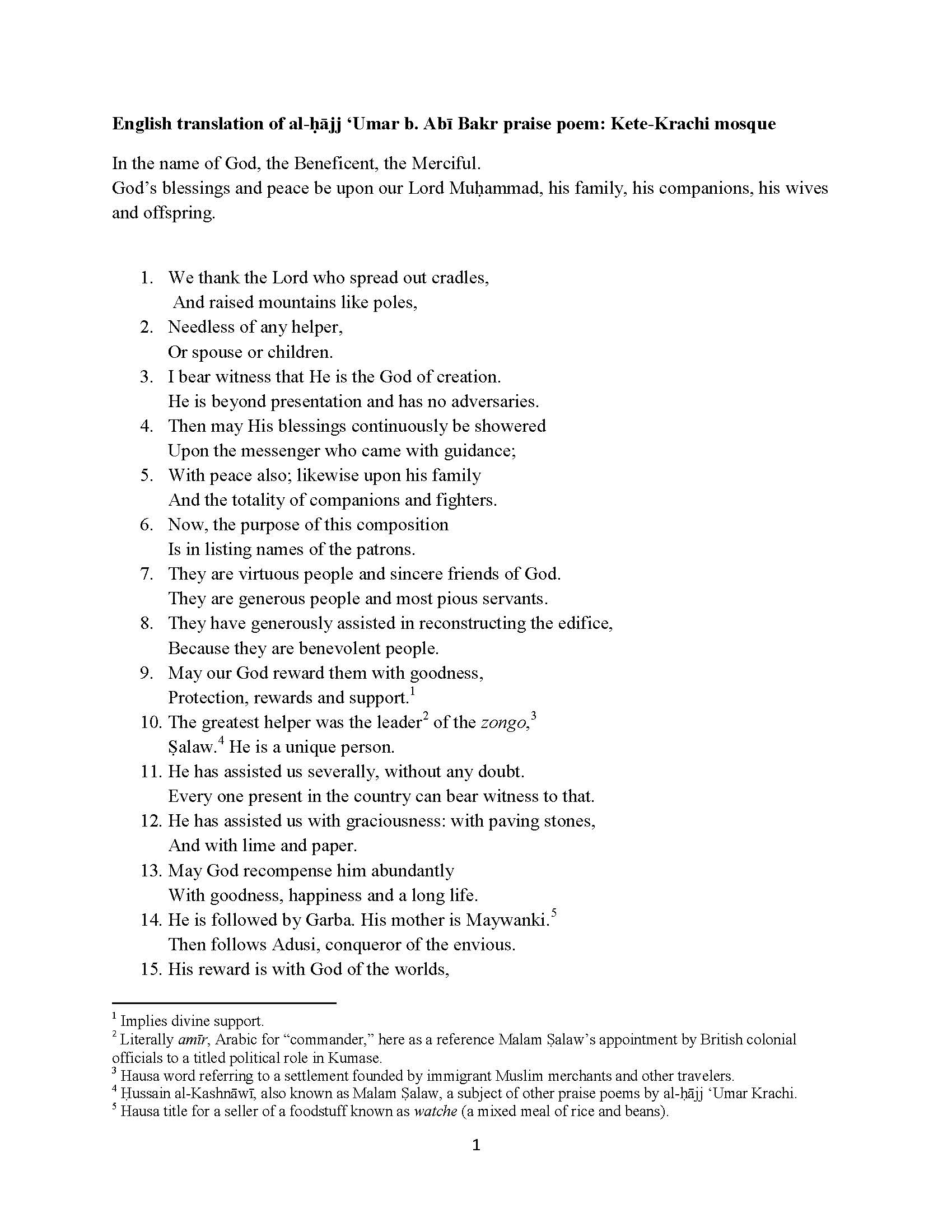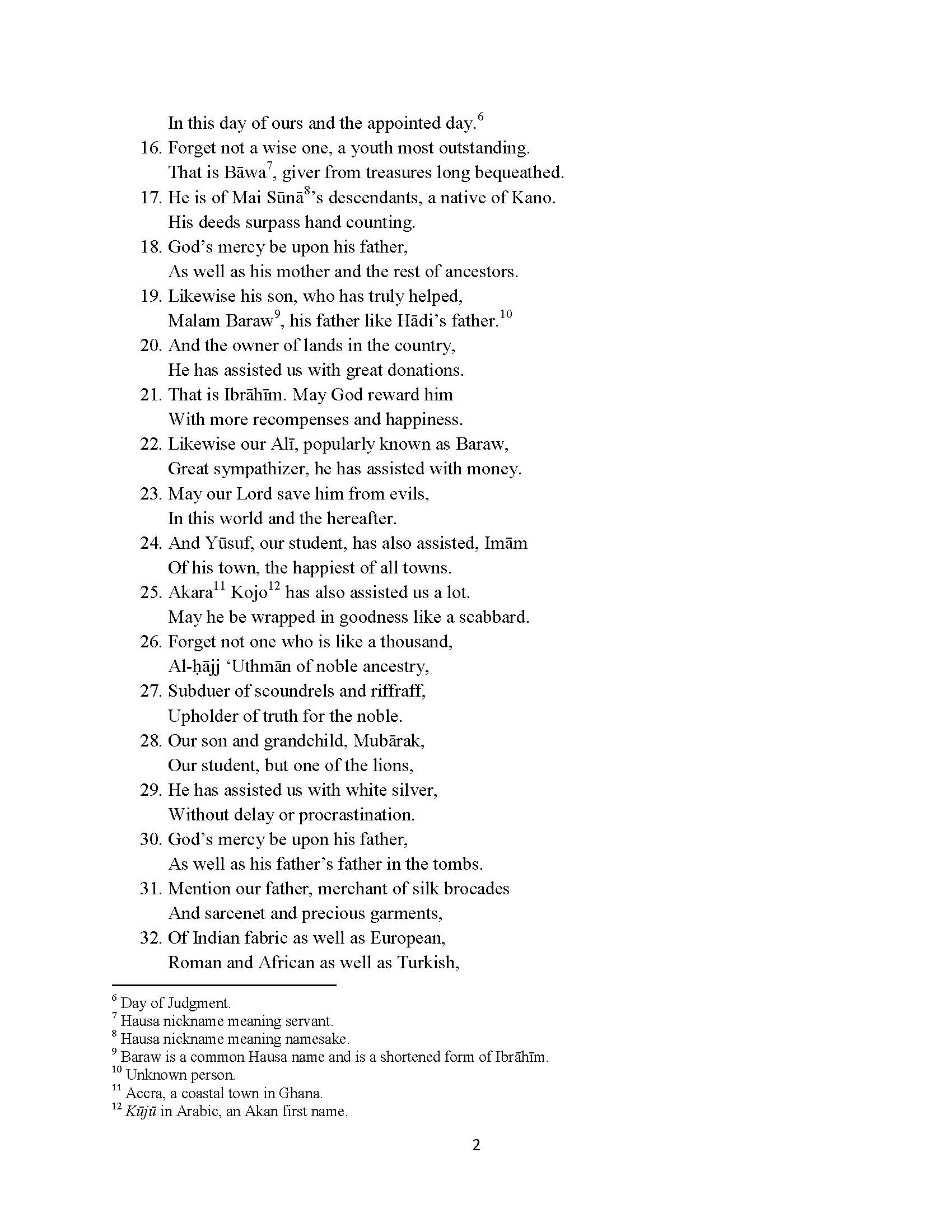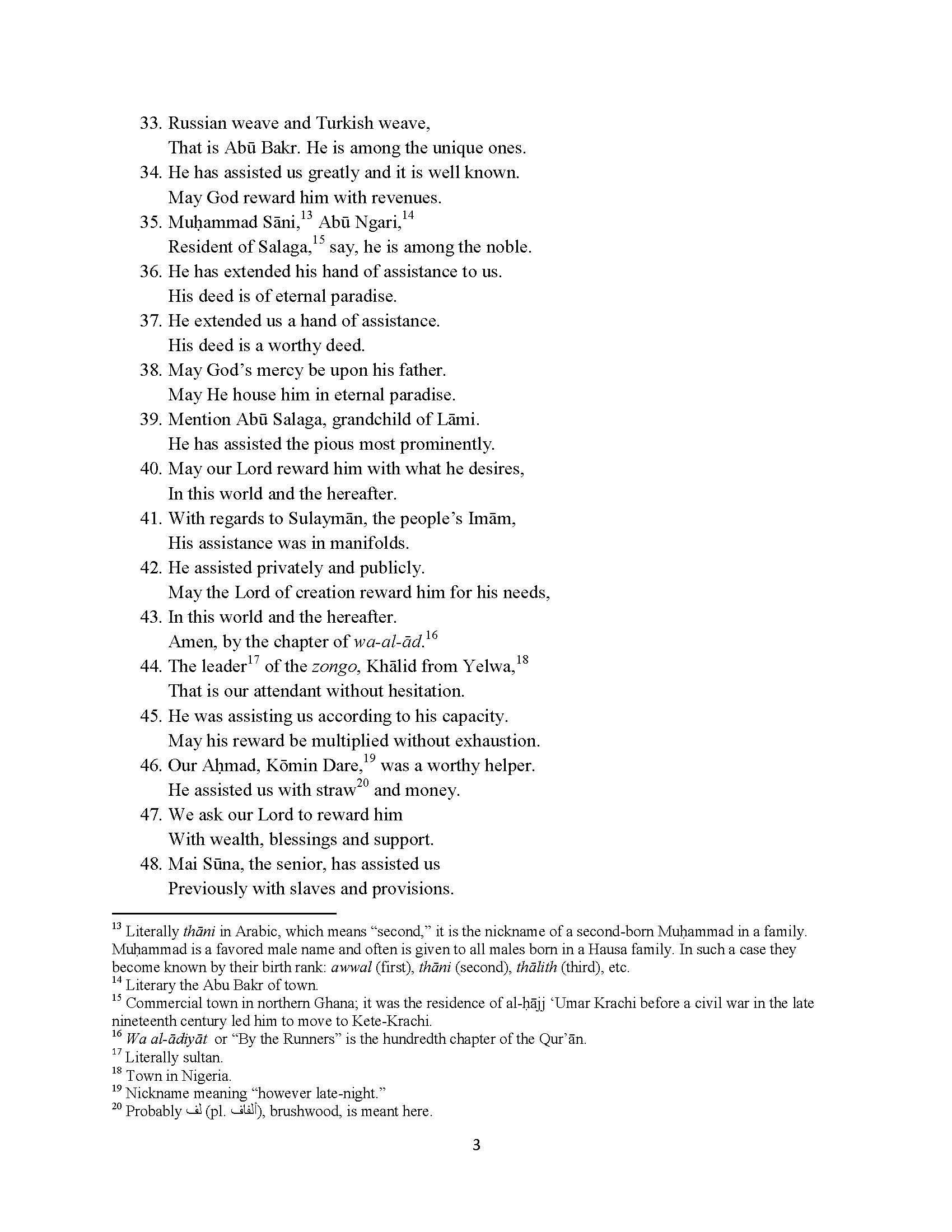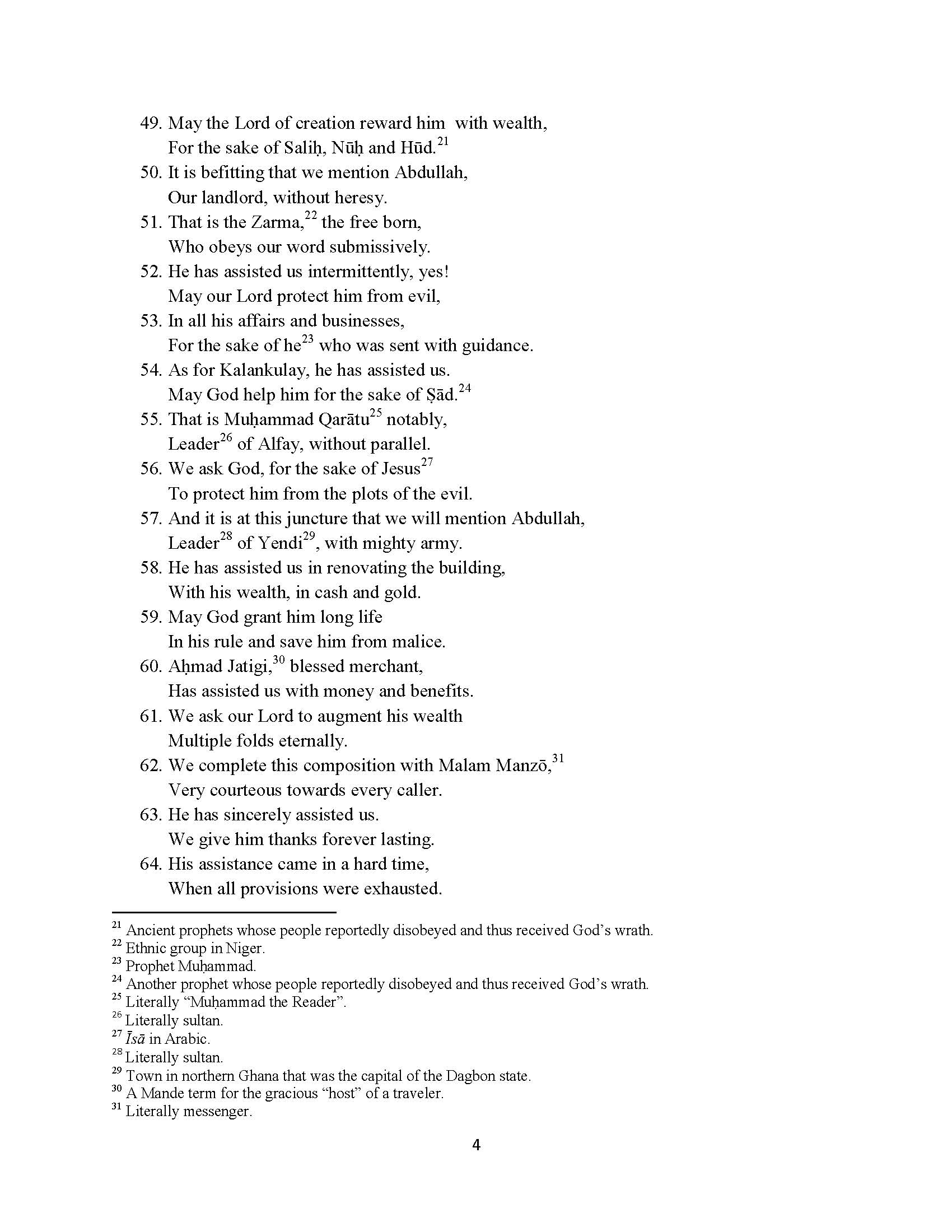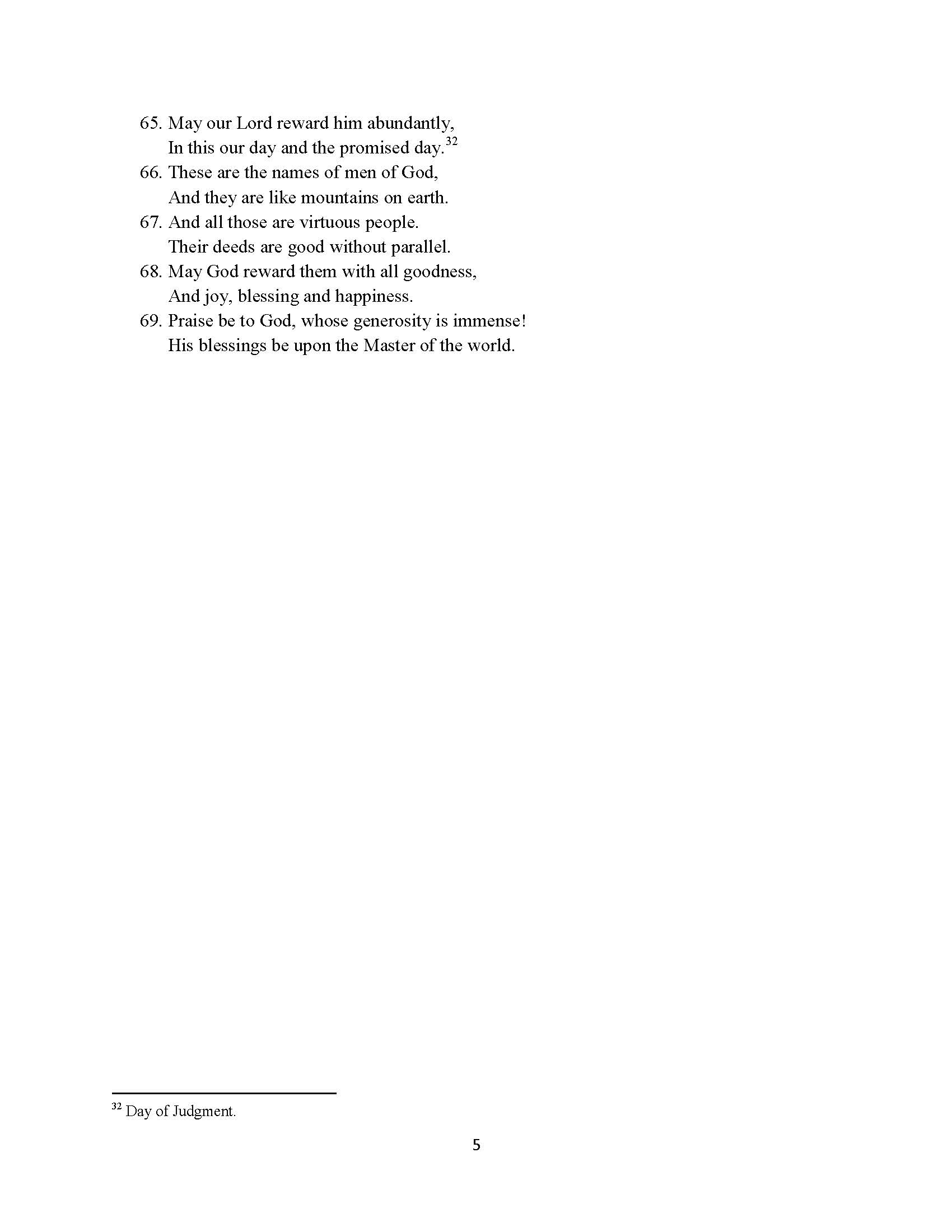Discourses of Muslim Scholars in Colonial Ghana
by John Hanson and Muhammad al-Munir Gibrill
Kete-Krachi Mosque (praise poem)

Transcript: Download (222 KB)
Translation: Download (408 KB)
Related Essay
Muslim Culture In The Middle Volta Basin Before The European Colonial EraCreator: al-ḥājj 'Umar ibn Abī Bakri of Kete-Krachi
Contributing Institutions: Muhammad al-Munir Gibrill; John H. Hanson; Institute of African Studies, University of Ghana at Legon; Northwestern University; MATRIX: The Center for Humane Arts, Letters & Social Sciences Online at Michigan State University
Contributor: Muhammad al-Munir Gibrill (translator and transcriber); John H. Hanson (reviewer)
Description: This praise poem is composed by al-ḥājj 'Umar Krachi (al-ḥājj 'Umar ibn Abī Bakr) to express thanks and gratitude to all those who assisted him in reconstructing his mosque.
This poem was composed late in al-ḥājj 'Umar's life. It lists and praises those who contributed funds to the building of a mosque in Kete-Krachi. It mentions one of the most generous and consistent of his benefactors, Malam Ṣalaw (Ḥussain al-Kashnāwī), who was a prominent Hausa scholar who assumed positions of influence in Kumase during the British colonial era. Malam Ṣalaw is the topic of several earlier praise poems, including three in this website. It also mentions several others by name and by title or activity, including numerous political leaders and merchants.
This poem is devoid of many features of classical Arabic poetry evident in the other poems, such as an amatory prelude and elaborate imagery. It goes directly from the conventional introductory Islamic doxology to describing the purpose of the poem, "listing the names of patrons." The praises to his patrons, too, often follow the same formula.
The poem is composed on the apocopated or curtailed rajaz meter that runs: mustaf'ilun, mustaf'ilun, mustaf'i in each hemistich. It provides evidence of al-ḥājj 'Umar's low vigor and loss of enthusiasm for writing poetry late in his life. He may have been ill, as the mosque was completed shortly before al-ḥājj 'Umar died.
Date: 1933
Date Range: 1930-1939
Location: Kete-Krachi , Volta Region, Ghana
Format: Text/pdf
Language: English
Rights Management: Educational use only, no other permissions
Digitizer: MATRIX
Archive: University of Ghana at Legon, Institute of African Studies
Source:
Institute of African Studies, Arabic collection, document number 161. The collection holds another copy: document 9.
